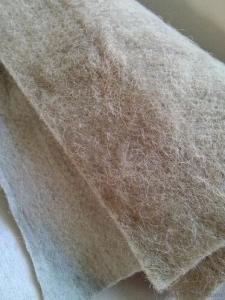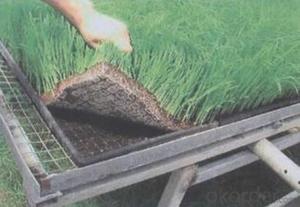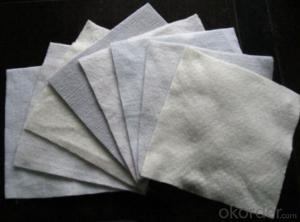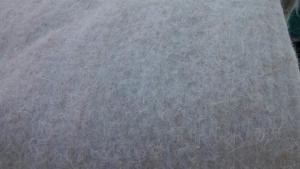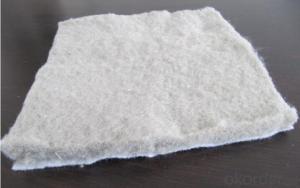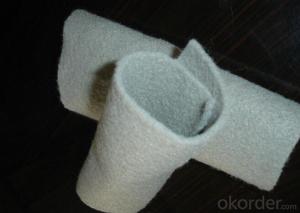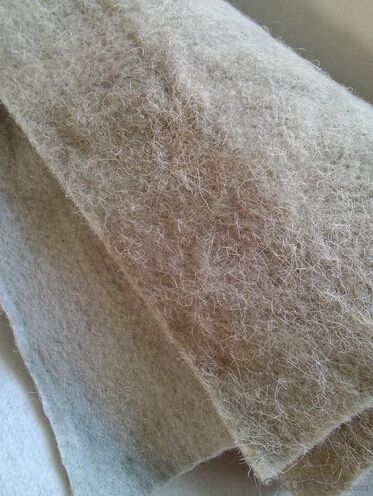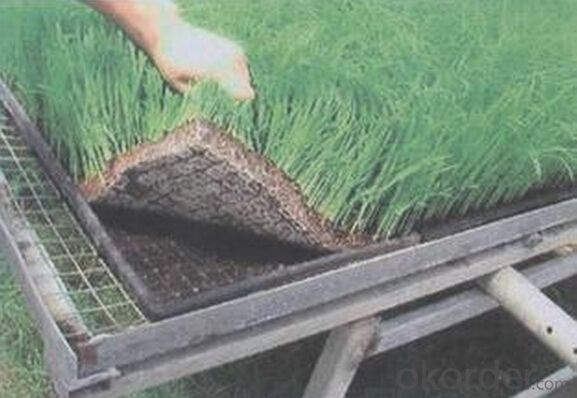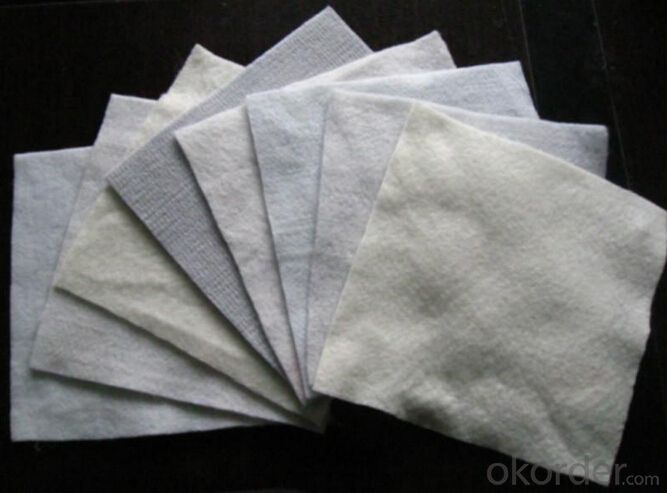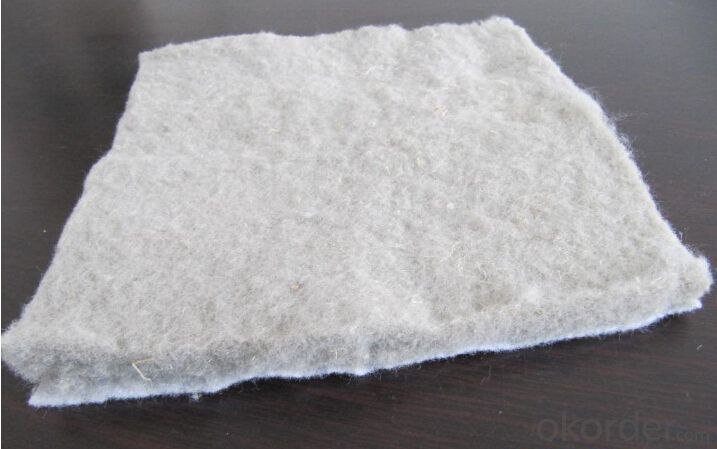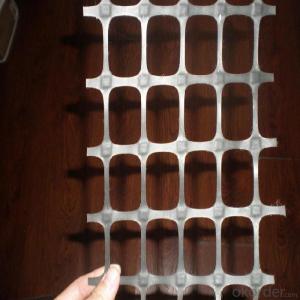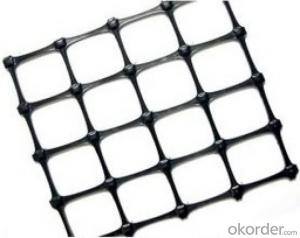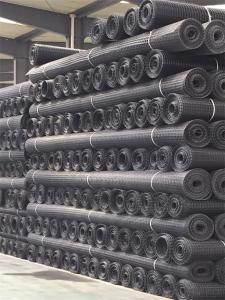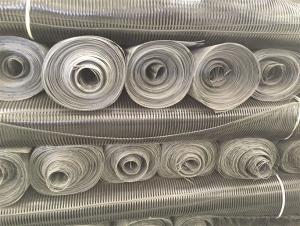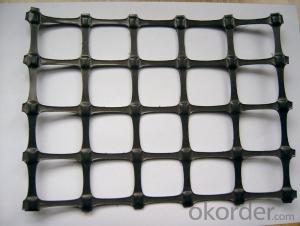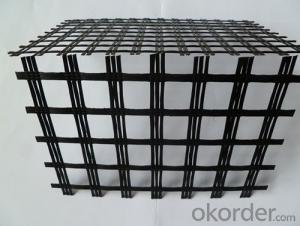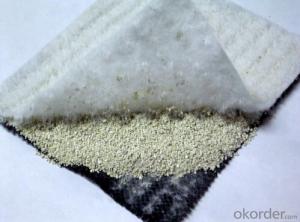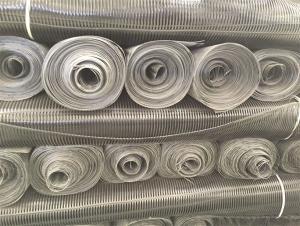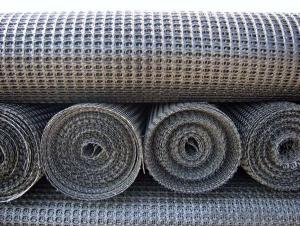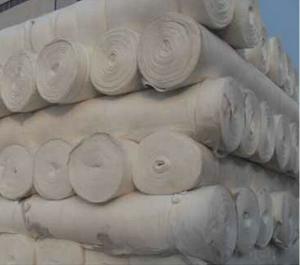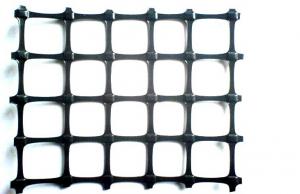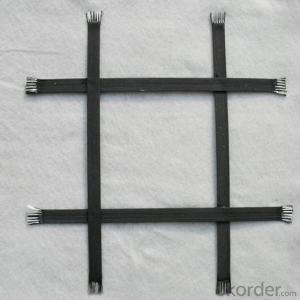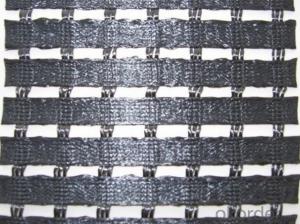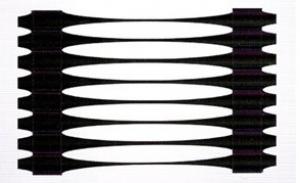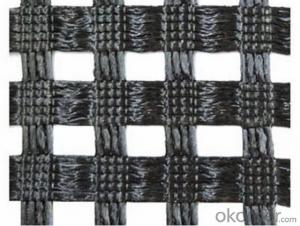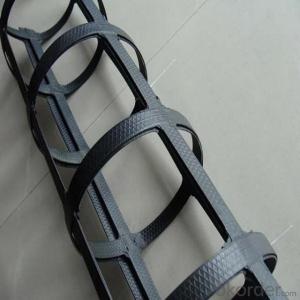Polypropylene Geogrids Nutrition Geotextile Factory Manufacturer Supplier
- Loading Port:
- Qingdao
- Payment Terms:
- TT OR LC
- Min Order Qty:
- 5000 m²
- Supply Capability:
- 2000000 m²/month
OKorder Service Pledge
OKorder Financial Service
You Might Also Like
Nutrition geotextile in water environmental engineering .
Specification:
It is compound of one layer non woven geotextile and one layer animal plant fiber felt . After the decom position of plant fiber felt layer can enhance the penetration resistance of the plant cells , Animal glue protein fiber breakdown can be long-term nitrogen fertilizer for plant growth.
It is a kind of used for laying under the green concrete plate, the restoration of ecological products which help plants to grow.
Product Feature:
1. Simple and fast construction
2. Achieve the greening effect quickly after construction
3. Due to the grass and composite fiber fabrics become into one integration, so it has the ability of certain degree of flow resistance for the water rising before the grass survive.
4. Composite fiber fabric is a continuous structure from slope top to slope toe, both ends are fixed, has high water flow resistance.
Technical Specification
5.0 m length and 1.05 m width. Reverse side all used filter material. Grass seeds: Bermuda grass (warm season grass), Bahia grass (warm season grass), Kentucky bluegrass (cold season grass), Tall fescue grass (cold season grass), Red fescue grass (cold season grass). Plant height: 0.1 ~ 0.5 m.
| NO. | Items | Specification | Notes | |||
| 1 | Total unit area weight g/sq.m | ≥380 | ||||
| 2 | dimension | width m | 1.0~2.0 | |||
| length m | as per user’s request | |||||
| 3 | Composite fiber fabrics | Material | Polyester Fiber | High strength PET | ||
| Unit area weight g/sq.m | ≥160 | |||||
| Mesh dimension mm | 8×8 | |||||
| Extension strengh kn/m | ≥11 | MD & CD | ||||
| 4 | Filtra layer | Material | Polyester non woven geotextile | |||
| Unit area weight g/sq.m | ≥40 | |||||
| 5 | Grass seeds, Fertilizer | Type | According to actual situation choose 3~5 grass seeds | |||
| Plant height m | 0.1~0.3 | |||||
| 6 | Fiber layer | Material | wood pulp cellulose | |||
| Unit areaweight g/sq.m | ≥15 | |||||
| 7 | flow resistance | ≥4 | not allow appear scour, suction and blanket turn-over etc. damage phenomenon | |||
| M/s | ||||||
| 8 | Anti-UV strengh conservation rate % | 65~80 | 3000hrs Continuously exposure 3000hrs | |||
| 9 | Supporting spare parts | ABS fastening nail | Material | ABS Resin | Fixed between two blankets by length direction | |
| Fiber diameter mm | 35 | |||||
| Nail length mm | 325 | |||||
| Lnail | Material | Steel wire (content 10% zinc-aluminium alloy) | Used to fix single blanket | |||
| Fiber diameter mm | 4 | |||||
| Nail length mm | 200 | |||||
| ABS connecting nail | Material | ABS Resin | Used in the slope between the two blankets ( width direction) | |||
| Nail length mm | 38 | |||||
| Connecting fiber | Material | High strength Polypropylene | Used in the slope between the two blankets ( width direction) | |||
| Length mm | Cut as per request | |||||
APPLICATION:
Generally laid on the river channel, slope protection etc. slope revetment projects, to control the water erosion, soil loss, meantime can reach the effect of slope ecological restoration and landscape greening, making river back to natural.
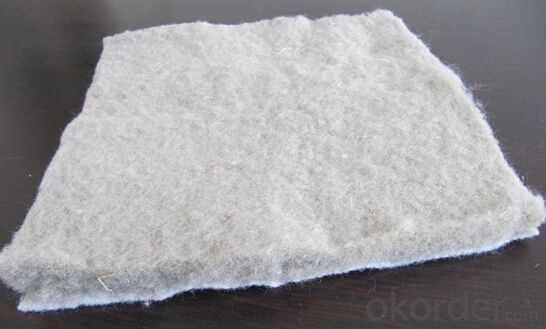
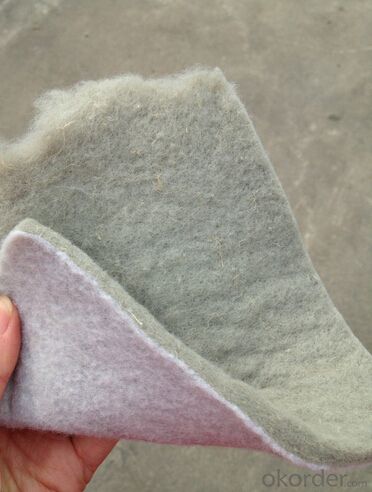
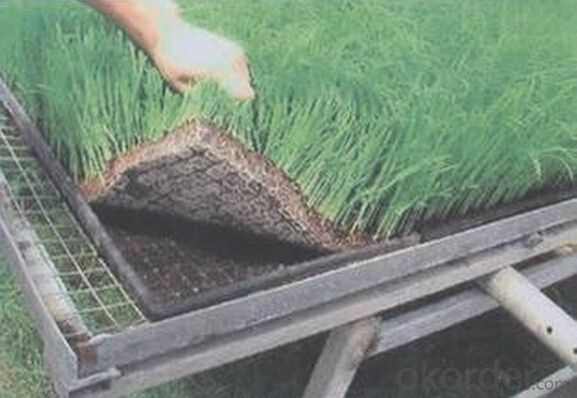
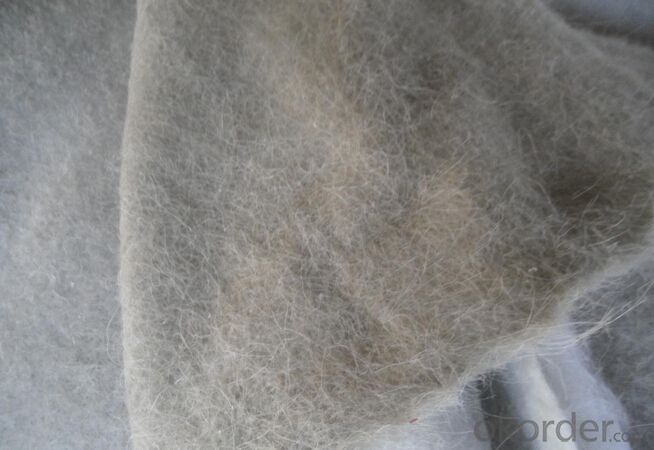
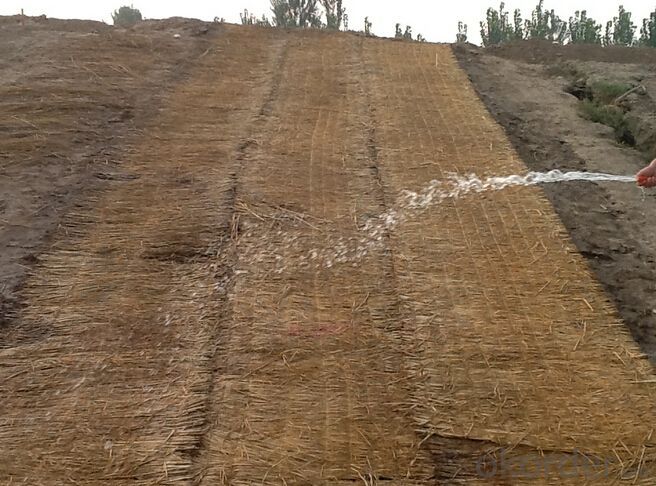
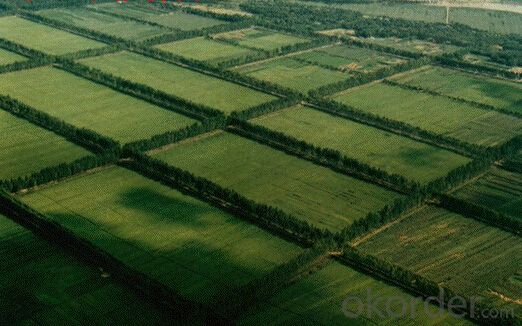
- Q: Can geogrids be used in construction of temporary access roads over soft ground?
- Yes, geogrids can be used in the construction of temporary access roads over soft ground. Geogrids are commonly used in civil engineering projects to reinforce and stabilize weak soil. By distributing load and providing tensile strength, geogrids can enhance the stability of temporary access roads, preventing sinking or rutting caused by soft ground conditions.
- Q: How do geogrids improve the performance of geosynthetic-reinforced foundations?
- Geogrids improve the performance of geosynthetic-reinforced foundations by providing enhanced tensile strength and stability to the soil. They act as a reinforcement material, distributing the load more uniformly and preventing the soil from shifting or settling. This helps to increase the overall strength and durability of the foundation, reducing the potential for foundation failure or deformation. Additionally, geogrids can also improve drainage and reduce the risk of erosion, further enhancing the performance of the geosynthetic-reinforced foundation.
- Q: Can geogrids be used in retaining walls for commercial developments?
- Yes, geogrids can be used in retaining walls for commercial developments. Geogrids are commonly used in such applications to improve the stability and strength of the retaining wall by providing reinforcement and preventing soil movement.
- Q: Are geogrids suitable for reinforcement of embankments on soft soils?
- Yes, geogrids are suitable for reinforcement of embankments on soft soils. Geogrids are designed to provide stability, enhance load-bearing capacity, and prevent soil erosion. They have been widely used in geotechnical engineering to reinforce embankments on soft soils by distributing loads and improving the overall stability of the structure.
- Q: Can geogrids be used in retaining walls for highway sound barriers?
- Yes, geogrids can be used in retaining walls for highway sound barriers. Geogrids are commonly used in retaining walls to reinforce the soil and provide stability. They can enhance the structural integrity of the retaining wall and help it withstand the lateral pressure exerted by the soil. Additionally, geogrids can also improve the overall performance of sound barriers by reducing noise transmission through the wall.
- Q: What are the factors to consider when selecting geogrids for a project?
- When selecting geogrids for a project, several factors need to be considered. These factors include the type of soil, the load requirements, the desired lifespan of the project, the installation method, and the environmental conditions. Additionally, factors such as cost, availability, and the reputation of the geogrid manufacturer should also be taken into account.
- Q: What are the maintenance requirements for geogrid-reinforced structures?
- The maintenance requirements for geogrid-reinforced structures typically involve periodic inspections to ensure the stability and integrity of the structure. This may include checking for any signs of soil erosion, settlement, or damage to the geogrid material. Regular maintenance activities may also involve removing any vegetation or debris that could potentially undermine the structure. Additionally, routine monitoring of the structure's performance and conducting necessary repairs or reinforcements as needed is essential to ensure its long-term stability and functionality.
- Q: What is the minimum net size of geogrid mesh Center
- The grid dimensions of the different materials are different, because the glass fiber and polyester is prepared, so the smallest mesh size, plastic medium, the largest steel and PP welding.
- Q: Can geogrids be used in mining and landfill applications?
- Yes, geogrids can be used in mining and landfill applications. Geogrids are commonly used in these industries to reinforce soil and provide stability to slopes, embankments, and retaining walls. They can enhance the strength and load-bearing capacity of the soil, making them suitable for various mining and landfill applications.
- Q: In the case of the subgrade with Geogrid
- A grille is made of polypropylene, PVC polymer and thermoplastic or molded by two-dimensional grid or a certain height of the three-dimensional mesh screen, when used as a civil engineering, called geogrid. Geogrid is a kind of main geosynthetics, which has unique properties and effects compared with other geosynthetics. Geogrid is often used as reinforcement of reinforced soil structure or composite material
Send your message to us
Polypropylene Geogrids Nutrition Geotextile Factory Manufacturer Supplier
- Loading Port:
- Qingdao
- Payment Terms:
- TT OR LC
- Min Order Qty:
- 5000 m²
- Supply Capability:
- 2000000 m²/month
OKorder Service Pledge
OKorder Financial Service
Similar products
Hot products
Hot Searches
Related keywords
